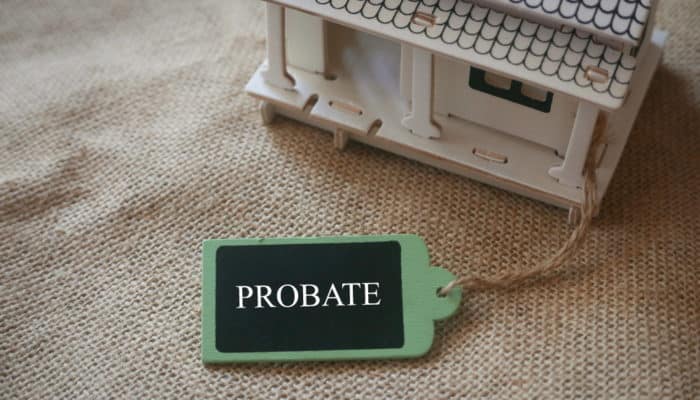When an estate is subject to probate, the entire process can get more difficult than expected. Heirs and beneficiaries can have disputes, and the process can become public, so people can minimize what assets are actually probated, if any.
Trusts can avoid probate but can also be problematic since they must be administered.
Certain steps can be taken to avoid probate through designation of beneficiaries or some type of joint ownership, which transfers ownership from a deceased party to the living through other means.
Bank accounts usually have two ways to avoid probate: joint ownership (by the entireties-Husband & Wife or with right of survivorship) or designated beneficiaries (or In Trust For, Transfer on Death, Payable on death, etc.). If a person owns a bank account jointly with another person when they pass away, the other person will assume ownership of the account. The same applies if a person owns account but has a beneficiary designation through their financial institution. The foregoing can often be referred to as “payable or transfer on death.” However, if an individual customer designates a beneficiary who is no longer able to assume ownership of the account due to either death or incapacity then the said account may be subject to probate or a legal guardianship.
The same rules of bank accounts apply to insurance policy benefits. Any applicable benefits of medical or life insurance policies will transfer without being subject to probate so long as beneficiaries have been properly designated.
Like bank accounts and insurance policies, an individual’s financial investment accounts can have a beneficiary designation as well.
Further, an important aspect of estate planning those individuals or clients need to understand is that accounts which have a beneficiary designation will generally supersede any language written in a Last Will & Testament. If a person has a beneficiary designation for an IRA through the account/institution itself, any bequest or distribution in one’s Will for the same account will be considered invalid.
The right to survivorship prevents a home (homestead or primary residence) and other properties from being subject to probate if there is a surviving spouse at the time the estate is executed. The previously mentioned means one’s home will remain in one’s spouse’s name without having to go through probate.
If property or assets do not specify the proper ownership language, then it is possible that the deceased party’s portion of the property may be subject to probate. In that case, a co-owner or spouse keeps their part or interest of the property, but the deceased’s portion may need to be probated and end up in the hands of another party.
If one’s spouse predeceases them and the survivor never remarries, then the entire property may be subject to probate unless it is transferred or distributed through a trust or other vehicle or designation.
As for real property, if a married couple wants to transfer the said real estate without need of probate to, for example, their children, the Remaindermen, a Lady bird deed may be the appropriate vehicle to convey the property after the death of the last spouse. A lady bird deed in Florida is a legal form that transfers property upon death inexpensively and without probate. A lady bird deed allows the current property owner to use and control the property during the owner’s lifetime, while the property automatically transfers upon death to designated beneficiaries/Remaindermen. The document or instrument is somewhat like a designation of beneficiary on real property.
It would merit speaking with an experienced estate planning attorney to review applicable documents to ensure a person takes advantage of these alternate methods of avoiding probate.
If you have any additional Questions regarding the foregoing or have any legal issue or concern, please contact the law firm of CASERTA & SPIRITI, in Miami Lakes, Florida.

